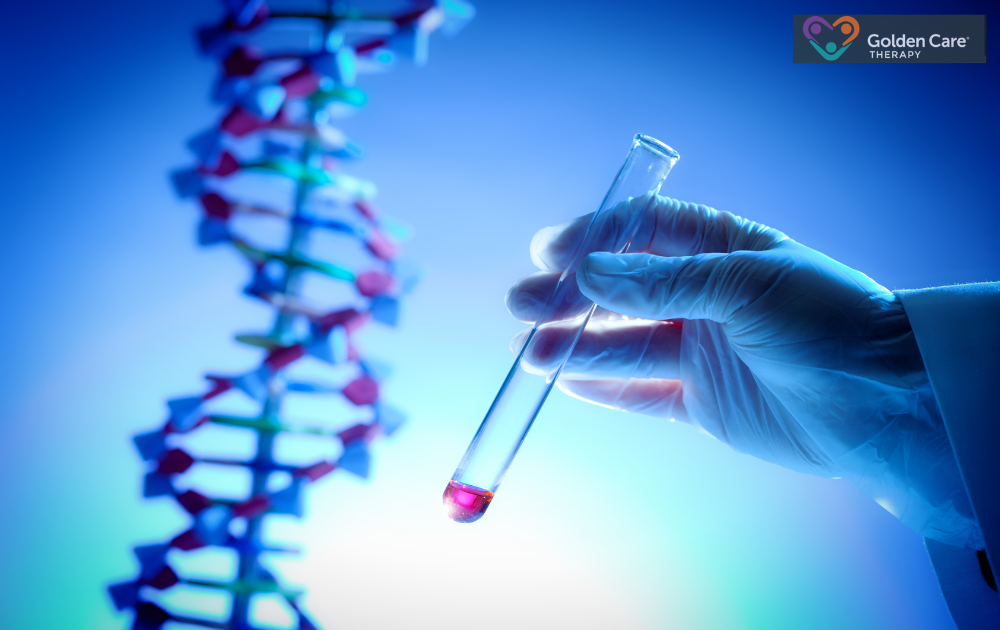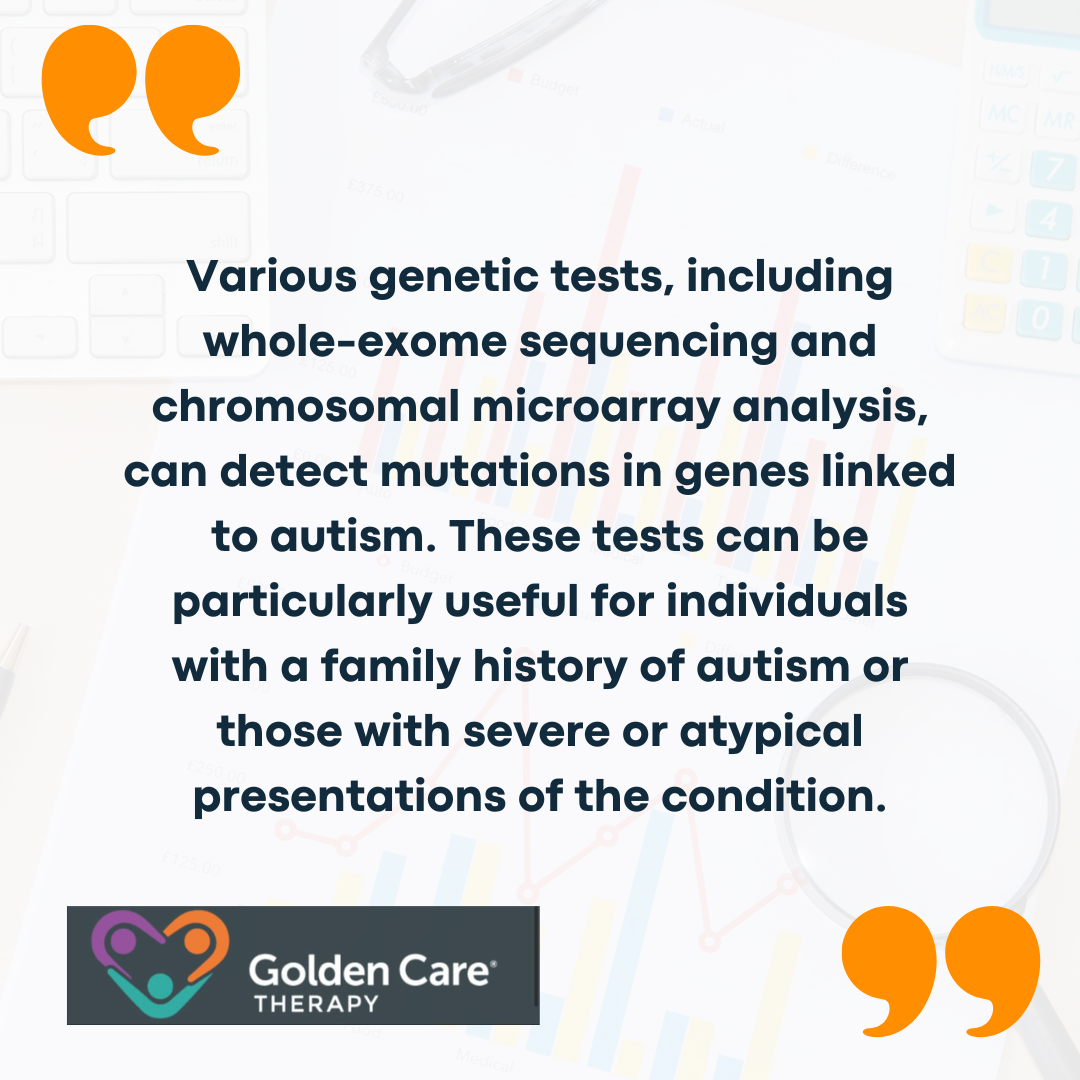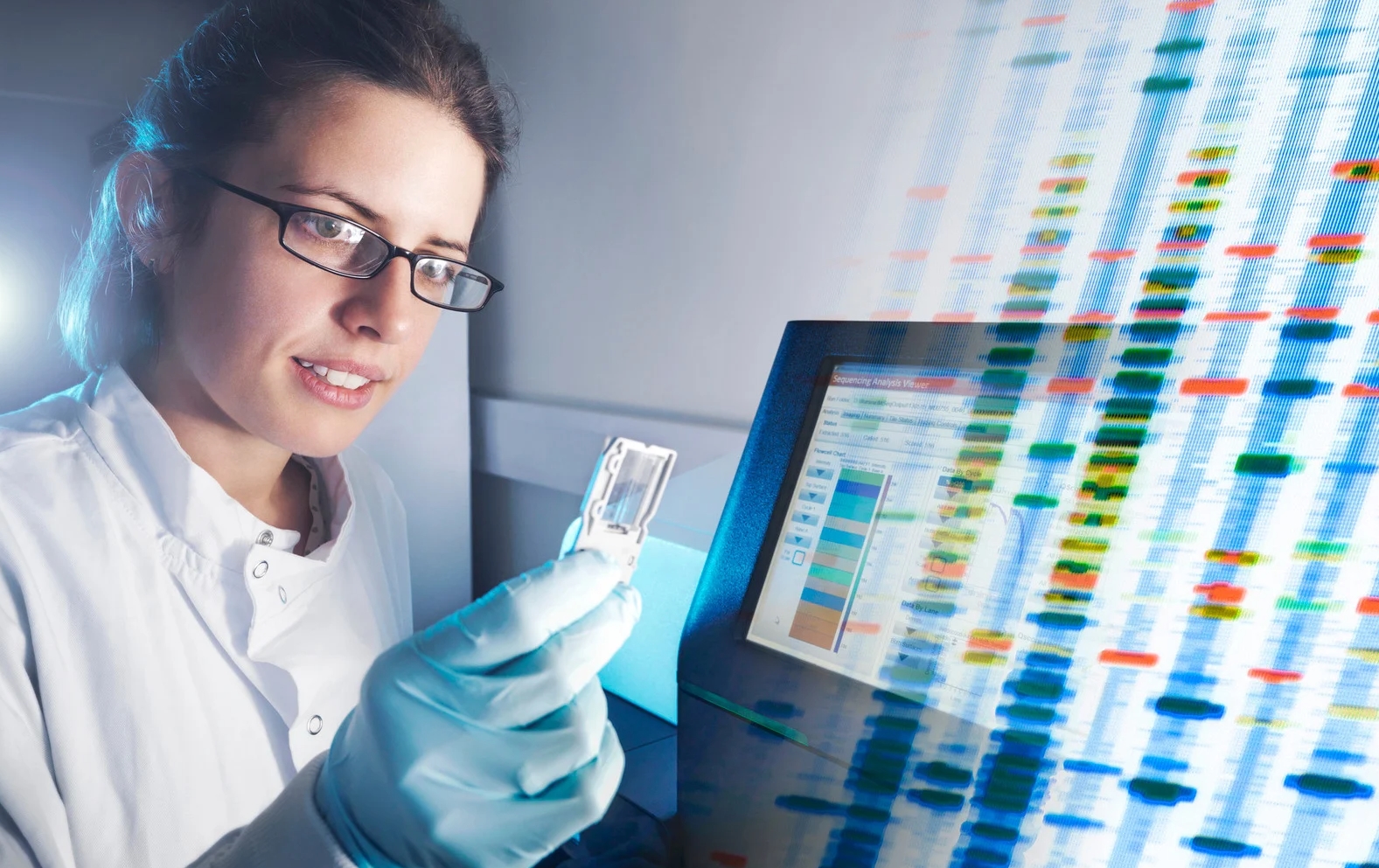While the exact causes of autism remain largely unknown, a growing body of research suggests that gene mutations play a significant role in its development. Understanding how gene mutations contribute to autism can provide valuable insights into the mechanisms underlying this condition and help pave the way for more effective interventions and treatments.

The Basics of Gene Mutations
Genes are segments of DNA that carry instructions for making proteins, which are essential for the structure, function, and regulation of the body’s tissues and organs. Mutations are changes in the DNA sequence of a gene. These changes can occur naturally during cell division or be induced by environmental factors such as radiation or chemicals.
Gene mutations can have various effects, ranging from benign to detrimental, depending on their nature and the genes they affect.
Research has identified numerous gene mutations associated with autism. These mutations can disrupt normal brain development and function, leading to the characteristic symptoms of ASD. Some gene mutations are inherited, while others arise spontaneously. Both inherited and de novo (new) mutations can contribute to the risk of developing autism.
One key study has elucidated how specific gene mutations can lead to autism by overstimulating brain cells. This overstimulation can disrupt the delicate balance of excitation and inhibition in the brain, which is crucial for normal cognitive and behavioral functions. For instance, a mutation in the gene SCN2A has been linked to autism.
SCN2A encodes a protein that forms part of a sodium channel involved in the transmission of electrical signals in the brain. Mutations in SCN2A can cause excessive neuronal activity, leading to the symptoms of autism.
Another important gene implicated in autism is CHD8. Mutations in CHD8 are among the most common genetic causes of autism. CHD8 is involved in regulating the expression of other genes during brain development. When CHD8 is mutated, it can disrupt the normal development of neural circuits, leading to the cognitive and behavioral deficits observed in individuals with autism.

Mechanisms of Gene Mutation-Induced Autism
Gene mutations can affect various biological pathways and processes in the brain, contributing to the development of autism. One mechanism involves synaptic function and plasticity. Synapses are the connections between neurons that allow them to communicate. Proper synaptic function and plasticity are essential for learning and memory.
Mutations in genes such as SHANK3, which is crucial for synaptic function, can impair synaptic communication and lead to the symptoms of autism. Additionally, gene mutations can affect the formation and maintenance of neural circuits. Neural circuits are networks of interconnected neurons that process information and generate responses.
During brain development, neurons must form precise connections to create functional circuits. Mutations in genes like NLGN3 and NLGN4, which encode proteins involved in synapse formation, can disrupt this process and contribute to autism.
Another critical mechanism involves the regulation of gene expression. Genes do not act in isolation but rather in complex networks that must be tightly regulated. Mutations in regulatory genes like MECP2 can lead to abnormal gene expression patterns in the brain, resulting in autism. MECP2 mutations are associated with Rett syndrome, a condition with features overlapping with autism.
Genetic Testing and Diagnosis
Genetic testing can help identify mutations associated with autism, providing valuable information for diagnosis and treatment.

Identifying specific gene mutations can also inform treatment strategies. For example, individuals with mutations in certain genes may benefit from targeted therapies that address the underlying biological mechanisms.
Moreover, genetic testing can provide families with information about the likelihood of autism recurrence in future pregnancies, helping them make informed decisions.
Implications for Treatment and Intervention
Understanding the genetic basis of autism has important implications for treatment and intervention. While autism currently has no cure, there are interventions that can help manage its symptoms and improve the quality of life among autistic individuals. These interventions include behavioral therapies, educational support, and medications to address specific symptoms such as anxiety or hyperactivity.
One promising area of research involves developing targeted therapies based on specific gene mutations.
For example, researchers are exploring the use of gene editing technologies like CRISPR to correct harmful mutations in animal models of autism. While this research is still in its early stages, it holds the potential to provide more effective treatments for individuals with autism caused by specific gene mutations.
Additionally, understanding the genetic underpinnings of autism can inform the development of personalized treatment plans. Individuals with autism can have vastly different experiences and needs, and a one-size-fits-all approach to treatment is often insufficient. Genetic information can help clinicians tailor interventions to the unique genetic profile of each individual, potentially improving outcomes.
Research and Future Directions
Research into the genetic causes of autism is ongoing, with new discoveries continuously expanding our understanding of this complex condition. Large-scale genomic studies, such as the Autism Sequencing Consortium, are analyzing the genomes of thousands of individuals with autism to identify new mutations and genetic risk factors. These studies aim to create a comprehensive map of the genetic landscape of autism, which could lead to new diagnostic tools and therapies.
Moreover, researchers are investigating the interplay between genetic and environmental factors in autism. While gene mutations can significantly increase the risk of autism, environmental influences such as prenatal exposure to certain chemicals or maternal infections can also contribute.
Understanding how these factors interact can provide a more holistic view of autism etiology and inform prevention strategies.
Advancements in technology are also aiding research efforts. High-throughput sequencing technologies allow for the rapid and cost-effective analysis of large datasets, facilitating the discovery of new gene mutations. Additionally, advances in computational biology enable researchers to model complex genetic networks and predict the effects of mutations on brain function.

The Future of Autism Research and Treatment
The field of autism research is rapidly evolving, with ongoing discoveries shedding light on the genetic and environmental factors that contribute to the condition. As our understanding of the genetic basis of autism grows, there is hope for more effective treatments and interventions.
One exciting area of research involves the development of gene-based therapies. These therapies aim to correct or mitigate the effects of harmful mutations, potentially addressing the root causes of autism. For example, gene therapy approaches that deliver functional copies of mutated genes or use gene editing to repair mutations are being explored in preclinical studies.
Additionally, advancements in precision medicine hold promise for personalized treatment approaches. By considering an individual’s unique genetic profile, clinicians can tailor interventions to address specific needs and optimize outcomes. This personalized approach recognizes the diversity of autism and aims to provide targeted support for each individual.
As research continues to uncover the genetic and environmental factors contributing to autism, there is hope for a future where individuals with autism receive the support and care they need to thrive. Understanding gene mutations associated with autism spectrum disorder (ASD) can lead to more targeted therapies and interventions. For families seeking an ABA therapist in New Jersey, Georgia, Indiana, and New York, Golden Care Therapy offers expert services. Contact us todayto learn more about how we can support your loved one’s journey.
Sources:
https://medlineplus.gov/genetics/condition/autism-spectrum-disorder
https://www.rutgers.edu/news/gene-mutation-leading-autism-found-overstimulate-brain-cells



